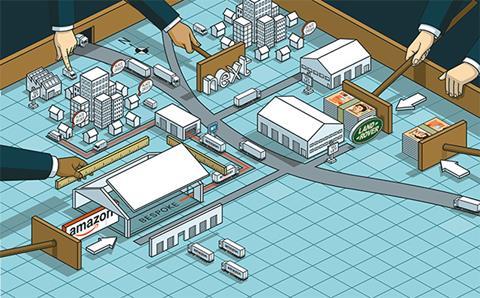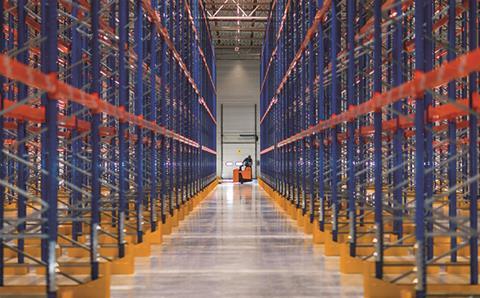Much has changed at MIPIM over the last ten years. The original iPhone hadn’t even been released, which may seem surreal to those who wouldn’t recognise the Main Auditorium without its now-ubiquitous sea of smartphone-illuminated faces. And people are talking about industrial property in a way that would have been unthinkable a decade ago, when vacancy rates of nearly 30% were just around the corner.

But of course, one of those changes is the reason for the other. The e-commerce penetration that the WiFi, 4G and smartphone revolution has enabled, allowing shoppers to order next day deliveries of everything from new laptops to chocolate teapots at the touch of a button, is crucial in explaining the renaissance sheds have had – and why they’re increasingly becoming the face of British retail.
Our “How soon is now?” report published last November brought together a who’s who of listed developers, investors and occupiers to gather their views on the profound impact this technological shift has had on logistics and industrial property across the UK and Europe. And this morning it is my pleasure to host a seminar on the report at the Addleshaw Goddard villa, which will also see the launch of Savills’ latest Megatrends report on European logistics.
It is a timely contribution. There is little better illustration of the strength of industrial property right now than the Investment Property Forum’s 2016 Consensus Forecast, which highlighted industrial not only as the strongest performing sector last year, but the only sector likely to deliver consistently strong total returns of at least 4 percent through the next few years of Brexit uncertainty.
The fundamentals of that growth are strong. Greater digital literacy and greater connectivity mean that e-commerce’s share of total sales is likely to continue growing even in the event of a downturn. Thanks to the extra supply chain demands of online retail, three times as much warehouse space is needed for online fulfillment compared with high street retail – an additional 775,000 sq ft of space for every extra €1bn spent online,according to Prologis/Aberdeen Asset Management research.
Bond-like assets
With ever more technologically advanced fit outs becoming the norm and well-connected space for warehousing going at a premium, large retailers are often keen to sign up to longer leases of 20 or more years on their sheds. It’s little wonder that institutional investors increasingly view sheds as bond-like assets.
But while European e-commerce growth can count on plentiful land to meet its growing demand for industrial space, there’s little such luck for the UK market with its infamous land and planning constraints, which are driving up land prices and discouraging the development that is needed.
Colliers International has estimated that the UK will need to build 18m sq ft of shed space annually, a far cry from the 3.8m sq ft set to be built this yearr. Put simply, if we want to carry on shopping online and having next day deliveries without paying massive premiums, far more needs to be done to unlock land for industrial use.

What that needs is action. Our report made a series of 12 policy recommendations, ranging from exempting speculative schemes from paying business rates until they have tenants, to mandating councils to designate land for industrial use, to providing RDA-style grant funding for infrastructure and brownfield remediation.
With industrial property underpinning manufacturing and retail, the sector of the UK economy that has so far warded off the spectre of post-referendum recession, the government has every incentive to find solutions. We hope today’s contributions will play their part in ensuring that in ten years’ time, cheap online delivery and available shed space aren’t as unimaginable as a main auditorium without WiFi is to us now.




























No comments yet